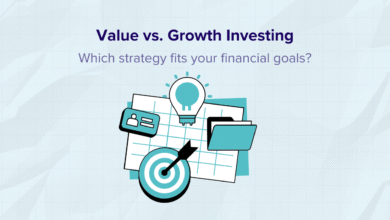Adapting bookkeeping practices for circular economy businesses

The circular economy is redefining traditional business models by emphasizing sustainability, resource efficiency, and waste reduction. As businesses increasingly embrace circular principles, there’s a growing need to adapt bookkeeping practices to accurately reflect the unique financial dynamics of these models. This blog post explores how bookkeeping practices can be tailored to meet the needs of circular economy businesses, ensuring financial transparency and promoting long-term sustainability.
Understanding the circular economy model
At its core, the circular economy seeks to design out waste and pollution, keep products and materials in use, and regenerate natural systems. Unlike the linear model of “Take, make, dispose,” the circular model emphasizes reuse, repair, refurbishment, and recycling. This shift impacts various aspects of business operations, including supply chain management, product design, and customer engagement, all of which have significant financial implications that need to be accurately captured and analyzed.
Challenges in bookkeeping for circular economy businesses
Valuing assets and inventory: circular economy businesses often have non-traditional assets, such as long-term leases on products or materials intended for reuse. Traditional bookkeeping practices may not adequately reflect the value of these assets over their extended lifecycle.
Cost allocation for reuse and recycling: allocating costs for processes like product refurbishment or materials recycling can be complex, as these costs need to be spread over multiple product cycles.
Revenue recognition: circular business models, especially those involving product leasing or sharing, require a reevaluation of revenue recognition practices to accurately reflect income streams over the service life of a product.
Adapting bookkeeping practices
Lifecycle accounting: adopting lifecycle accounting methods can help circular economy businesses more accurately assess and report the costs and revenues associated with products throughout their entire lifecycle. This approach provides a more comprehensive view of profitability and sustainability.
Activity-based costing (abc): abc can be particularly effective for circular economy businesses by allocating costs more precisely based on specific activities, such as collection, refurbishment, and resale. This method offers greater insight into the profitability of each stage in the circular process.
Integrated software solutions: leveraging advanced bookkeeping and erp software that can be customized for circular business models is crucial. These systems can track and manage complex inventory flows, multiple revenue streams, and lifecycle costs, providing real-time financial data essential for strategic decision-making.
Sustainability reporting: beyond traditional financial reporting, circular economy businesses should adopt sustainability reporting frameworks, such as the global reporting initiative (gri) or the sustainability accounting standards board (sasb). These frameworks can help businesses communicate their economic, environmental, and social performance, aligning with investor and consumer expectations for transparency and accountability.
Collaboration with stakeholders: engaging with suppliers, customers, and financial institutions about the specifics of circular bookkeeping practices can foster a shared understanding and support for the circular model. This collaborative approach can help standardize practices and metrics for assessing circular economy initiatives.
The role of bookkeepers and accountants
Bookkeepers and accountants must upskill and familiarize themselves with the principles of the circular economy to provide valuable support to businesses adopting these models. Continuous education and collaboration with sustainability experts can equip financial professionals with the knowledge and tools needed to navigate the unique challenges of circular bookkeeping.
Conclusion
As the circular economy continues to gain momentum, the need for adapted bookkeeping practices becomes increasingly apparent. By addressing the unique financial dynamics of circular business models, bookkeepers can play a pivotal role in promoting sustainability, transparency, and long-term viability. Embracing these changes requires a shift in mindset and a commitment to continuous learning, but the rewards—both environmental and economic—are substantial. Through innovative bookkeeping practices, businesses can pave the way for a more sustainable and financially resilient future.



